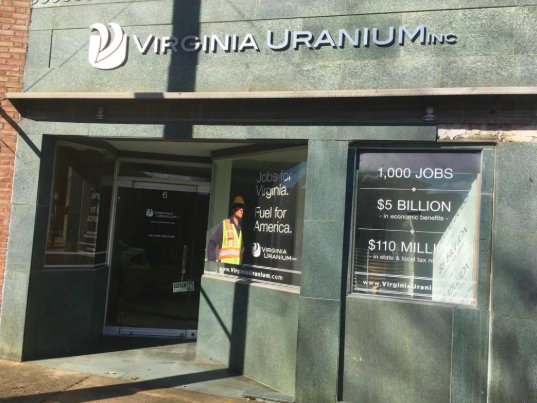
In an unanticipated plot twist, the Supreme Court’s most liberal and conservative Justices joined together and upheld a decades-old Virginia law banning uranium mining, and did so over the objection of the Trump Justice Department and three other Justices who now occupy the ideological center of the Court. The case turned on whether the Federal Atomic Energy Act, which regulates the development of uranium to be used in nuclear power plants, “pre-empted” the state law mining ban because the state law was, in essence, a ban of uranium development and therefore the federal law should govern as is the case in any direct conflict between state and federal laws.
Why This Matters: For decades, “states’ rights” have been the rallying cry of conservatives in politics and on the Supreme Court because often state laws were more conservative and pro-business and less protective of worker’s rights and the environment. Ironically, just as the Supreme Court is poised for a long era of conservative opinions given the Trump appointees, this states’ rights philosophy may come back around on them. Increasingly, state and local governments are taking actions and passing laws that are more protective of the environment than federal rules and laws. Cases like this one will test whether the Trump Justices will alter their prior philosophical views and court precedents to overturn state laws in order to reach the more pro-business result. Next year the Court will decide a similar case in which the state of Montana passed a law that would clean up a notorious toxic waste site to a higher standard than the federal Environmental Protection Agency is requiring. This could get interesting.
Pre-emption Based on Implied Legislative Intent Lost Out.
In case you were wondering who was on the “winning” side, Justice Gorsuch, a Trump appointee, wrote the majority opinion for himself and Justices Thomas and Kavanaugh upholding the traditionally conservative “states rights” position, and liberal Justices Kagan, Ginsburg, and Sotomayor agreed with the result but Justice Ginsburg wrote a separate opinion. Justices Breyer, Roberts and Alito argued that the state’s intent to ban nuclear power development was clear enough — and the impact of the state law, whether clearly intended or not, pre-empts a federal law.
- The super smart lawyers at SCOTUS blog thought the conservative Justices dodged the toughest question presented in the case — “What is the proper role for state legislative purpose in a pre-emption analysis?”
- SCOTUS blog explains that “[t]he Gorsuch opinion stated that state legislative purpose has no place in pre-emption analyses, whereas the Ginsburg opinion expressed discomfort at such a hard-line stance.
- Gorsuch reasoned that if courts started to “read between the lines” of state statutes to infer intent it would incentivize state legislatures to “resort to secrecy and subterfuge” rather than openly explain their true purpose for passing a law that is governing an area in which there is also federal law.
- Ginsburg, on the other hand, “rejected the argument that Virginia’s ban was a pretext for regulating the radiological safety of milling and tailings management, even though the ban makes it very unlikely that such activities will take place within the state’s borders.”
To Go Deeper: You can read the Court’s opinions here.
June 19, 2019 » Atomic Enegy Act, ban, federal pre-emption, mining, nuclear power, Supreme Court, uranium


